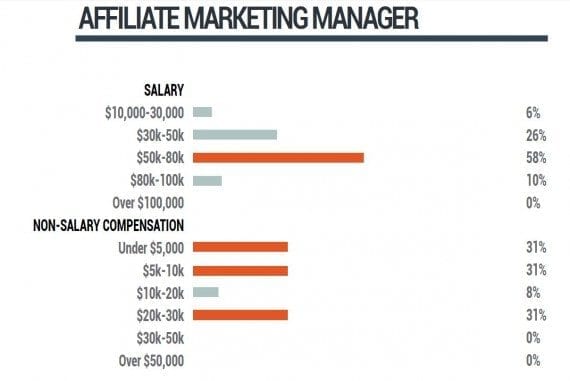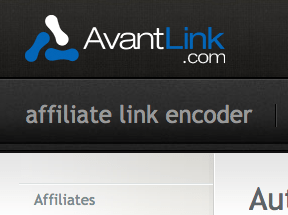A successful affiliate marketing program requires oversight — uploading and maintaining the creative inventory, approving and communicating with affiliates, and reporting and analysis. The person doing this oversight is also likely responsible for developing promotional strategies, negotiating placements on affiliate sites, recruiting new affiliates, and ensuring all affiliates are engaged and active. These responsibilities are typically associated with an in-house affiliate marketing manager, or an outsourced program manager.
In-house Affiliate Managers
In-house affiliate managers are typically paid a salary, plus benefits and bonuses. According to a salary survey released by the Performance Marketing Association this past April, almost 60 percent of respondents said that the salary of an affiliate marketing manager was between $50,000 to $80,000, while that of a senior affiliate marketing manager was between $80,000 to $100,000.
Of the companies surveyed, 31 percent reported annual revenue of more than $10 million, and 38 percent reported annual revenue between $1 million to $10 million.

Affiliate marketing manager salaries, from a 2014 survey conducted by Performance Marketing Association.
The benefit of hiring an in-house affiliate manager is that the person is focused entirely on your program. Also, since she is on-site and integrated with the rest of your marketing team, she can react quickly to shifts in promotional strategy and more easily collaborate with other team members to support internal initiatives.
Outsourced Affiliate Management
The other option is to outsource management of your affiliate marketing program to an agency. This is not an uncommon practice. You would typically be assigned to an affiliate manager at the agency. Instead of paying a salary, you’re typically paying a monthly retainer and a percentage of sales.
One of the benefits of working with an external agency is that many agencies have access to lower rates for affiliate network, placement opportunities, and affiliate tools that could offset some of the monthly cost. Another benefit is that an agency could have a broad view into affiliate performance and have more insight into what placements work best with what retailer, because the agency may have tested that placement with another client.
A disadvantage to working with an agency is that an account manager there likely works with many clients. A retailer should ask the agency what the maximum number of clients an account manager is allowed to work on and what other clients the agency manages, as this will indicate the agency’s strengths. For example, some agencies are strong with driving leads, others focus on the travel segment, while others have expertise in marketing to women.
Retainers for agencies are typically between $1,000 and $5,000 per month. Factors that impact this range could include term (a one-year contract versus multi-year), percentage of revenue share, and scope of service. Depending on the size of the account, some agencies will assign a team to work with the client, with team members having specialized functions such as recruiting or reporting.
Another factor that could impact the agency’s fee structure is the maturity of the client’s affiliate program. A new program often requires much initial work before normal management services kick in. A new program requires testing, creative inventory, and initial outreach and recruiting activities. Thus for new programs it’s not uncommon to see higher retainers and a lower revenue share. This arrangement could evolve as the account grows.
When choosing between an in-house manager or an external agency, do not base the decision on cost alone. Running an affiliate program takes effort. Be honest about the level of internal resources in your company that can be dedicated to the channel. It is certainly possible to train someone who is interested and driven.
But an affiliate program without dedicated effort will not succeed. You might even consider hiring an agency or consultant to train an existing employee. The key point to remember is that affiliates are only as engaged as the program manager. So whichever option you choose, the key is to have someone who is dedicated to growing your program.





